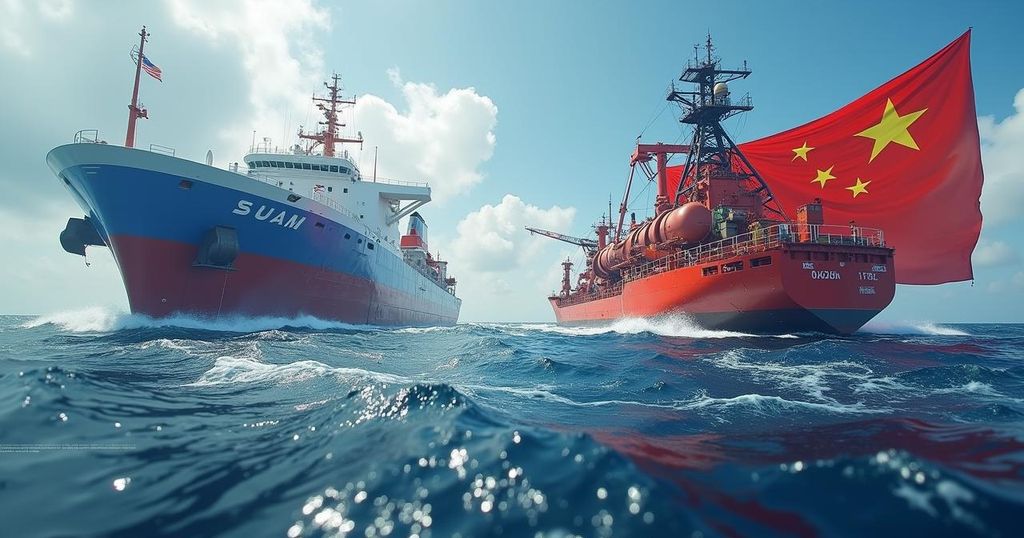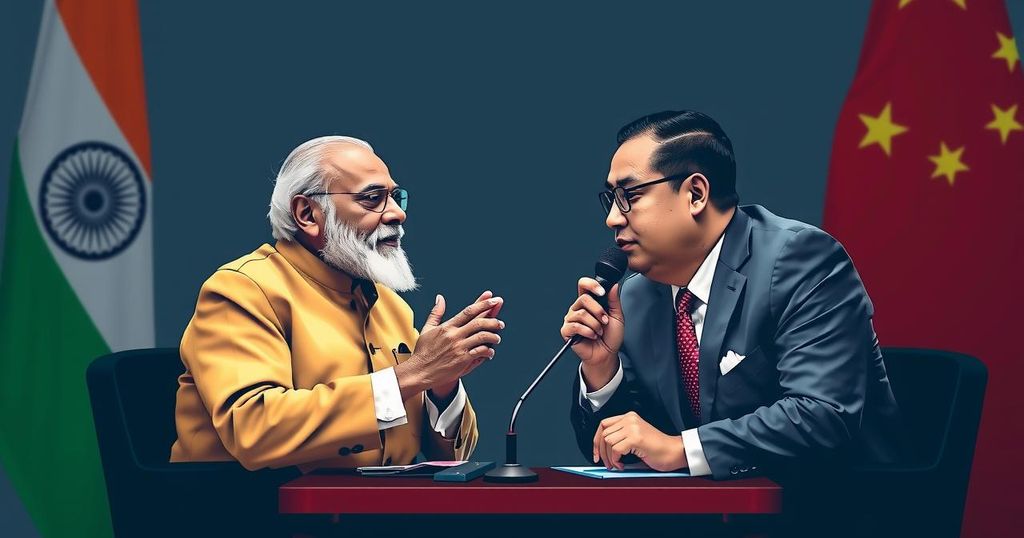Russia and China Hinder ASEAN Consensus on South China Sea at East Asia Summit
Russia and China blocked a proposed consensus statement by ASEAN during the East Asia Summit due to disagreements over the South China Sea language. While several nations supported the statement, Russia and China opposed it, citing concerns over its political implications. The ongoing tensions illustrate the complexities of maritime claims and regional diplomacy in Southeast Asia.
Russia and China have impeded the acceptance of a consensus statement proposed by the Association of Southeast Asian Nations (ASEAN) during the East Asia Summit, primarily due to dissent regarding terminology relating to the South China Sea, as stated by a United States official on Saturday. The ASEAN, comprising ten nations, submitted a draft statement to the eighteen-member East Asia Summit convened in Laos on Thursday evening. The ASEAN representatives characterized this draft as a take-it-or-leave-it document. The official indicated that while nations such as the United States, Japan, Australia, South Korea, and India expressed their support for the statement, Russia and China refused to proceed with its adoption. Russian Foreign Minister Sergei Lavrov articulated at a press conference in Vientiane that the failure to adopt the final declaration stemmed from a continuous effort by certain nations, including the United States and its allies, to transform the statement into a political instrument. The U.S. official highlighted that the contentious issues were largely centered on the reference to the United Nations Convention on the Law of the Sea (UNCLOS), which was more emphatically addressed than in the previous 2023 EAS statement. However, the official reassured that the proposed language did not favor any specific claimant nor delve into detailed disputes in the South China Sea. China has long claimed extensive rights over nearly all of the South China Sea and has increased its assertiveness against several rival claimants, notably the Philippines. ASEAN countries have been engaged in prolonged negotiations for a code of conduct with China regarding the South China Sea, with some nations insisting on adherence to UNCLOS as the foundational legal framework. Despite China asserting its support for such a code, it rejects the validity of a 2016 arbitral ruling which determined that its expansive claims have no legal grounding under UNCLOS, which China had signed. The draft statement, as observed by Reuters, proposed additional clauses compared to the previously approved 2023 EAS statement, notably recognizing a 2023 UN resolution stipulating that UNCLOS outlines the legal framework governing all marine activities. Another clause that encountered opposition referenced the international challenges in regions such as the South China Sea and the Korean Peninsula. Premier Li Qiang of China reiterated Beijing’s commitment to UNCLOS and expressed desires for the swift establishment of a code of conduct during the summit. He contended that China’s territorial claims are underpinned by solid historical and legal grounds, urging external countries to respect the cooperative endeavors of China and regional nations in maintaining peace and stability in the South China Sea.
The South China Sea is a strategically significant area that is claimed almost entirely by China, which has led to ongoing territorial disputes with several Southeast Asian nations. The Association of Southeast Asian Nations (ASEAN) plays a crucial role in facilitating dialogue and seeking agreements on conduct and cooperation in this contested region. The tensions surrounding these discussions reflect broader geopolitical dynamics involving major powers such as the United States, Russia, and China, often influencing the proposals put forth at international summits. This context underscores the intricate nature of diplomacy in multilateral forums, particularly concerning contentious issues like maritime rights and international law.
In summary, the obstruction by Russia and China of the ASEAN consensus statement during the East Asia Summit exemplifies the complex interplay of regional and global political interests, particularly concerning the South China Sea. The divergent stances among these nations highlight the challenges faced in achieving a unified approach to such a critical geopolitical issue. Continued dialogue among all stakeholders remains essential in fostering stability and resolving disputes in this strategically vital maritime region.
Original Source: www.theguardian.com







Post Comment